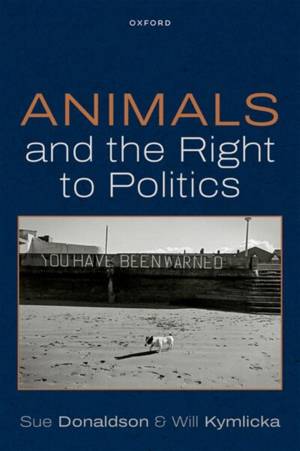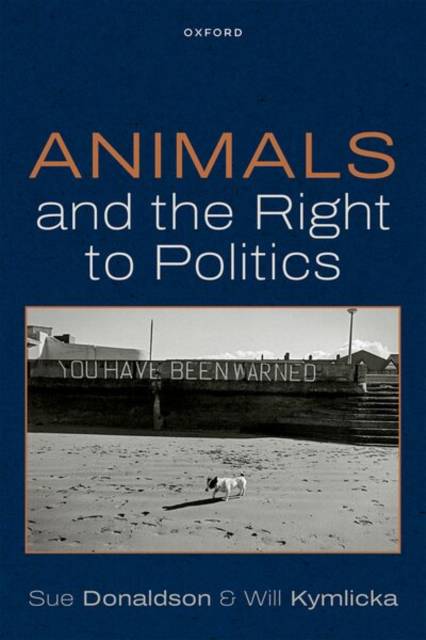
- Afhalen na 1 uur in een winkel met voorraad
- Gratis thuislevering in België vanaf € 30
- Ruim aanbod met 7 miljoen producten
- Afhalen na 1 uur in een winkel met voorraad
- Gratis thuislevering in België vanaf € 30
- Ruim aanbod met 7 miljoen producten
Zoeken
€ 249,95
+ 499 punten
Uitvoering
Omschrijving
The assumption that only humans can engage in politics - that only humans are 'zoon politikon' - is foundational to the Western tradition of political philosophy. While there is increasing recognition of animals' moral status (both within moral philosophy and at the level of public opinion), animals are not recognized as political subjects. This carefully researched but accessibly written volume - following on from the authors' earlier book Zoopolis - argues that animals too have a right to politics: a right to be recognized as political subjects and agents, and as members of political communities entitled to collective self-determination. The book draws on recent scientific work on animal societies, cultures, and decision-making, as well as recent work by political theorists rethinking ideas of agency and community - especially the significance of emplaced and embodied encounters and relationships to the activity of politics. Sue Donaldson and Will Kymlicka draw a picture of what it would mean to create spaces and practices, not only for politics conducted by humans on behalf of animals, but also politics with and by animals on their own terms. It then explores how this approach could inform a wide range of contemporary debates in human-animal relations, including wildlife conservation, urban planning, and animal labour.
Specificaties
Betrokkenen
- Auteur(s):
- Uitgeverij:
Inhoud
- Aantal bladzijden:
- 348
- Taal:
- Engels
Eigenschappen
- Productcode (EAN):
- 9780198988236
- Verschijningsdatum:
- 11/12/2025
- Uitvoering:
- Hardcover
- Formaat:
- Genaaid
- Afmetingen:
- 156 mm x 234 mm
- Gewicht:
- 662 g

Alleen bij Standaard Boekhandel
+ 499 punten op je klantenkaart van Standaard Boekhandel
Beoordelingen
We publiceren alleen reviews die voldoen aan de voorwaarden voor reviews. Bekijk onze voorwaarden voor reviews.








